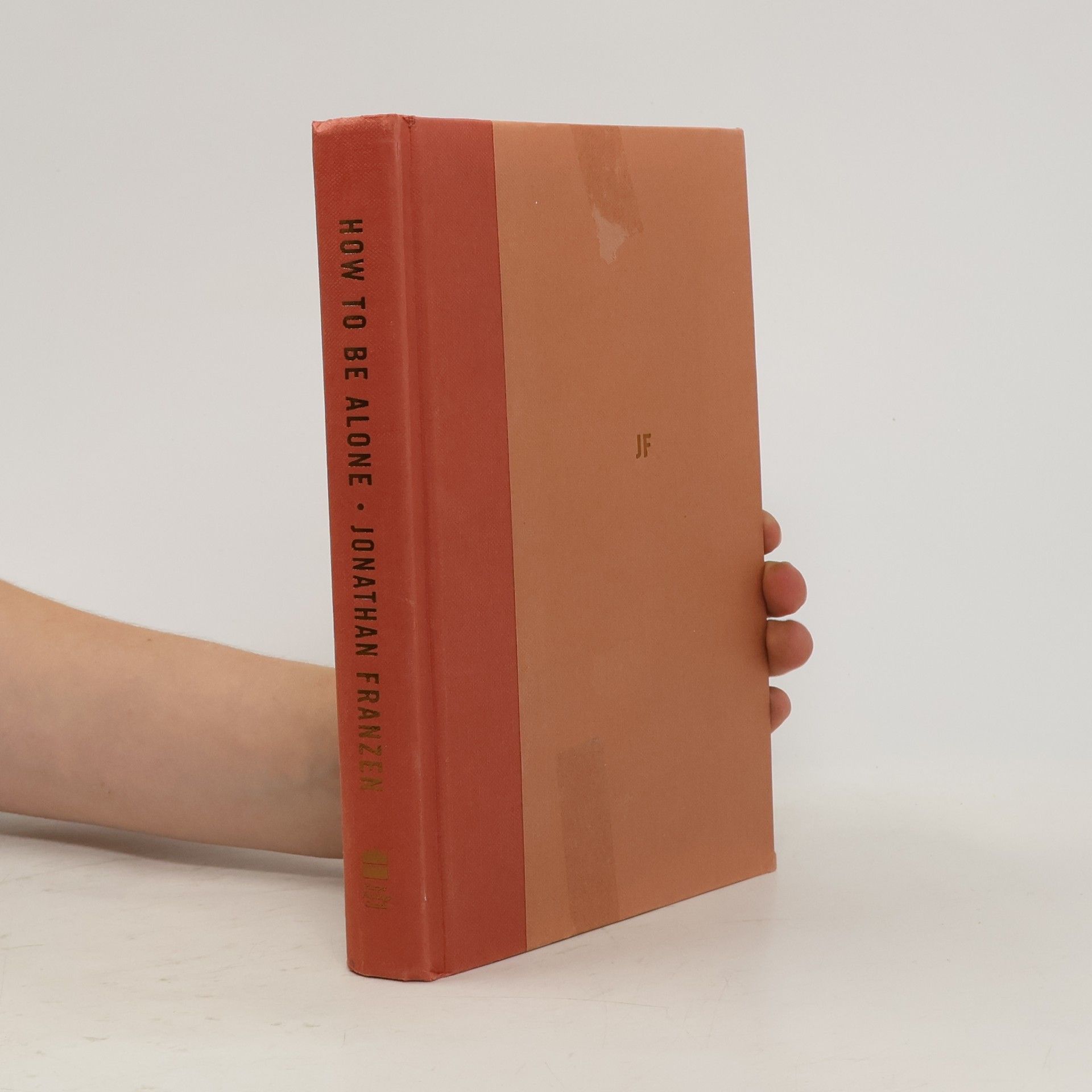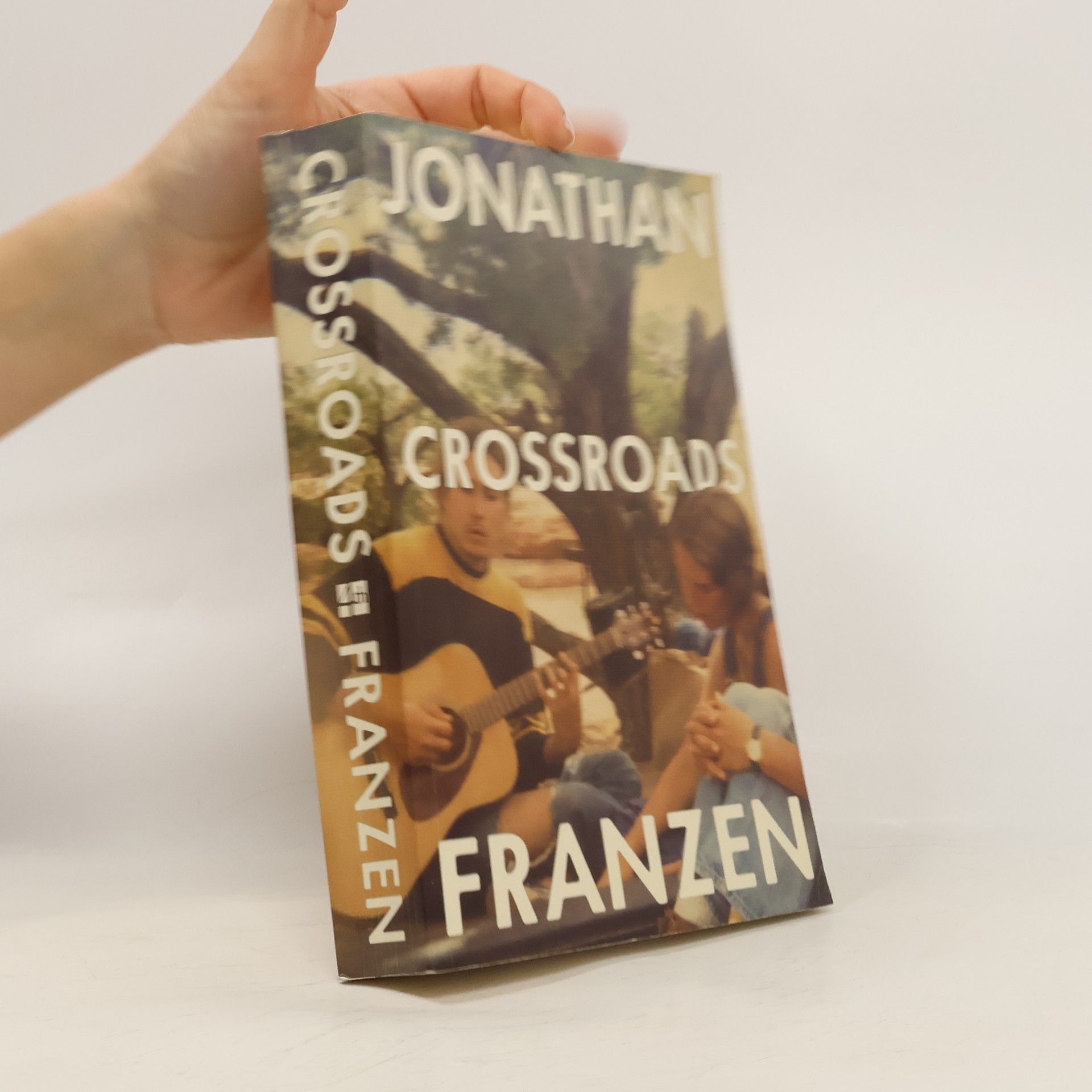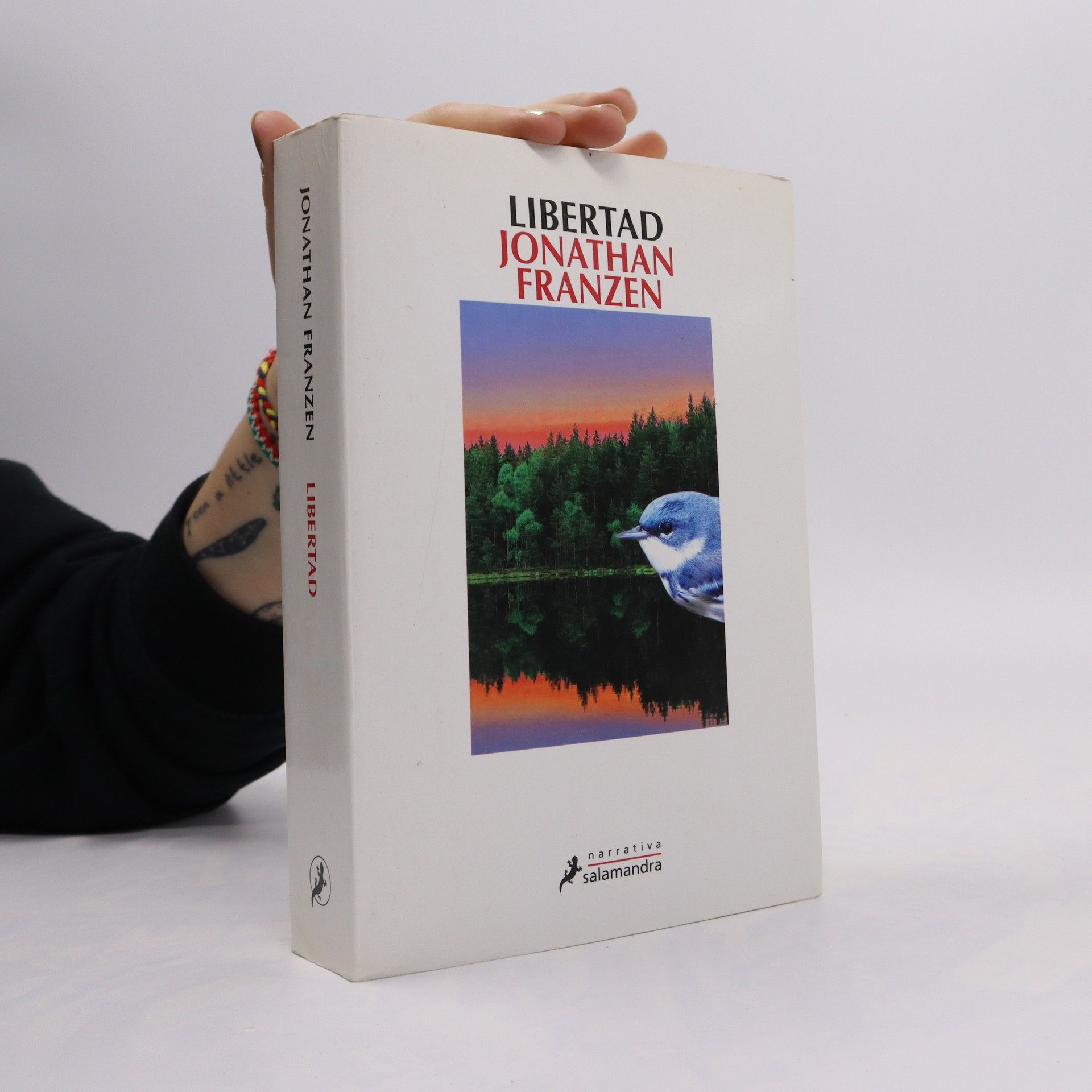Encrucijadas / Crossroads
- 640 páginas
- 23 horas de lectura
Jonathan Franzen es un autor cuyas novelas profundizan en las complejidades de la vida moderna. Sus obras exploran frecuentemente las dinámicas familiares, las tendencias sociales y la búsqueda de significado en los tiempos contemporáneos. La prosa de Franzen es reconocida por su aguda perspicacia y su capacidad para capturar la profundidad psicológica de sus personajes. Escribe sobre la experiencia de ser humano en la era actual, y sus libros a menudo provocan fuertes respuestas emocionales y promueven una profunda reflexión.







Sophie y Otto Bentwood son una acomodada pareja neoyorquina de mediana edad, sin hijos y con una vida aparentemente envidiable, rodeada de pequeños lujos, alta cultura y amistades cool, que vive en una casa remodelada en un Brooklyn que apenas comienza a gentrificarse. Una noche, un gato callejero muerde a Sophie cuando ella le da de comer. Este accidente, aparentemente anodino, será el pistoletazo de salida de una serie de pequeñas tragedias, de pequeños encuentros y desencuentros que, de manera tan sutil como quirúrgica, dibujan el quebrado y turbulento paisaje interior de Sophie. Convencida de haber contraído la rabia, Sophie parece verlo todo a través de unos ojos febriles y de un malestar impreciso, creciente. Así, el miedo a padecer la enfermedad se mezcla, paulatinamente, con la otra «rabia», con esa combustión interior en la que arden los sueños rotos y el hastío ante una vida sin sentido. «Bajo el caparazón de la vida corriente y sus pactos imperfectos, acechaba la anarquía», reflexiona Sophie en cierto momento. De esa fractura, de esa convulsa y soterrada angustia que subyace bajo la impoluta superficie de la privilegiada pero vacua y convencional cotidianidad de Otto y Sophie trata Personajes desesperados, un libro que juega sabiamente con la tensión entre la mesura y el desgarro para señalar el vértigo y el vacío al que se abren las vidas de sus protagonistas.
Set in East Berlin, this satirical novel blends humor and poignancy, capturing the absurdities of life in a divided city. Its vivid characters navigate a landscape filled with challenges, evoking both laughter and deep emotion. Critics praise its brilliance, highlighting the author's ability to tackle serious themes while maintaining a light-hearted tone. The narrative promises a unique exploration of resilience and the human spirit against the backdrop of a significant historical context.
Crossroads is the first novel in Jonathan Franzen's A Key to All Mythologies. The trilogy tells the story of a Midwestern family across three generations, mirroring the preoccupations and dilemmas of the United States from the Vietnam War to the 2020s
From the National Book Award-winning author of "The Corrections," a collection of essays that reveal him to be one of our sharpest, toughest, and most entertaining social critics While the essays in this collection range in subject matter from the sex-advice industry to the way a supermax prison works, each one wrestles with the essential themes of Franzen's writing: the erosion of civil life and private dignity; and the hidden persistence of loneliness in postmodern, imperial America. Reprinted here for the first time is Franzen's controversial l996 investigation of the fate of the American novel in what became known as "the Harper's essay," as well as his award-winning narrative of his father's struggle with Alzheimer's disease, and a rueful account of his brief tenure as an Oprah Winfrey author.
At once a searing indictment of corporate culture, a story of a young man confronting his past and future with honesty, and a testament to the enduring power of family, The Man in the Gray Flannel Suit is a deeply rewarding novel about the importance of taking responsibility for one's own life."--BOOK JACKET.
Korean edition of THE CORRECTIONS: A Novel by Jonathan Franzen, the winner of the 2001 National Book Award for Fiction. Author Franzen deftly sketches a portrait of the modern American dysfunctional family and marriage. In Korean. Annotation copyright Tsai Fong Books, Inc. Distributed by Tsai Fong Books, Inc.
"Young Pip Tyler doesn't know who she is. She knows that her real name is Purity, that she's saddled with $130,000 in student debt, that she's squatting with anarchists in Oakland, and that her relationship with her mother -- her only family -- is hazardous. But she doesn't have a clue who her father is, why her mother chose to live as a recluse with an invented name, or how she'll ever have a normal life. Enter the Germans. A glancing encounter with a German peace activist leads Pip to an internship in South America with The Sunlight Project, an organization that traffics in all the secrets of the world -- including, Pip hopes, the secret of her origins. TSP is the brainchild of Andreas Wolf, a charismatic provocateur who rose to fame in the chaos following the fall of the Berlin Wall. Now on the lam in Bolivia, Andreas is drawn to Pip for reasons she doesn't understand, and the intensity of her response to him upends her conventional ideas of right and wrong."--Jacket
Jonathan Franzen's Freedom was the runaway most-discussed novel of 2010, an ambitious and searching engagement with life in America in the twenty-first century. In The New York Times Book Review, Sam Tanenhaus proclaimed it "a masterpiece of American fiction" and lauded its illumination, "through the steady radiance of its author's profound moral intelligence, [of] the world we thought we knew." In Farther Away , which gathers together essays and speeches written mostly in the past five years, Franzen returns with renewed vigor to the themes, both human and literary, that have long preoccupied him. Whether recounting his violent encounter with bird poachers in Cyprus, examining his mixed feelings about the suicide of his friend and rival David Foster Wallace, or offering a moving and witty take on the ways that technology has changed how people express their love, these pieces deliver on Franzen's implicit promise to conceal nothing. On a trip to China to see first-hand the environmental devastation there, he doesn't omit mention of his excitement and awe at the pace of China's economic development; the trip becomes a journey out of his own prejudice and moral condemnation. Taken together, these essays trace the progress of unique and mature mind wrestling with itself, with literature, and with some of the most important issues of our day. Farther Away is remarkable, provocative, and necessary.